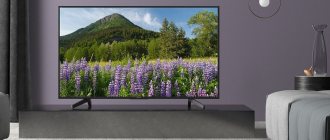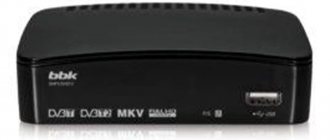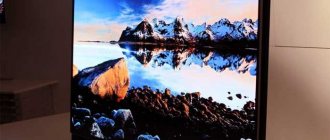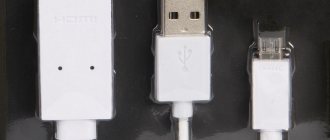Two South Korean global brands LG and Samsung are engaged in eternal rivalry. And this helps them develop and improve their products.
The LG brand was created back in 1947, but the first products had nothing to do with televisions. Toothpaste, face cream and similar products were sold. However, after 11 years, the world began to become more and more immersed in electronics, and the company changed direction.
Now the brand's products can be found almost anywhere in the world, because they are sold in 95 countries. Currently, the company is part of the LG Group conglomerate and produces consumer electronics and home appliances.
In the 1930s, Lee Byung-chul opened the production of rice flour. This is how the story of Samsung's development from a small food factory to a global brand of household appliances begins.
At the time of the industrial boom, the company, like LG, changes its direction and goes into electronics. And now, several decades later, Samsung, part of the Samsung Group conglomerate, becomes a global company producing household appliances, audio and video devices and competes even with Apple.
LG TVs
The latest models of LG TVs are equipped with the α7 Gen3 chip, having comparable characteristics to its main competitor in a number of indicators - upscaling, scene dynamics, audio control. The main difference is the special NanoCell coating, and LG TVs use the WebOS operating system. This OS is easy to use, intuitive, has a clear interface, and supports a wide range of applications. The NanoCell coating provides a more colorful picture, but no better than its direct competitor Samsung.
Users rarely encounter problems recognizing media files. In some videos, subtitles may not be displayed correctly, this is the main drawback that users complain about. The main disadvantage of LG TVs is the DLNA operation. If the hard drive is not connected to the router, 4K video with high bitrate will not play or will require constant re-downloads. All modern models come with HDR support, and the latest models come with HDR 10 Pro.
Which TV is better to buy in the middle class?
Considering the price/quality ratio, NanoCell takes the lead here for the following reasons:
- peak brightness is higher than that of IPS matrices;
- the price/quality ratio is better than that of QLED matrices;
- there are several 4K lines that differ in price;
- Each model from 43 to 49 inches has good sound and a fresh processor.
We no longer analyze UHD lines of previous generations, because over the past couple of years each brand has released many worthy new products.
Samsung TVs
Samsung equips its new models with the Neo Quantum 4K chip with the fastest possible response, an image scaling function (upscaling) to 4K format and a function for complete immersion in what is happening on the screen.
The top models are distinguished by a frameless design and a laconic appearance. Equipped with a variety of functions, they support display refresh rates up to 100 Hz. However, this option is available when the video resolution is 1920x1080 pixels. When working with 4K content, the frequency drops to 50-60 frames per second.
Samsung uses Tizen, an open operating system designed for a wide range of devices. This software controls the Smart TV function and provides additional display adjustment options. One of these is the “transparency” effect, which allows the TV to fit more organically into the interior.
The Ambient function allows you to put the TV into standby mode, displaying various useful information on the screen, for example, showing the time. The background can be set to a photo of the wall behind the device itself or any other selected image. Samsung TVs support almost all existing video formats, sometimes problems may arise with outdated ones, such as DivX and BD images.
Customer reviews and price
Comparison of LG and Samsung TVs takes place in a highly competitive environment. Buyers leave a lot of reviews, and each brand has its own supporters.
The quality of a TV is determined primarily by how well it meets the needs of a particular user:
- The LG brand is distinguished by its attention to detail. Thanks to this, TVs are customized down to the smallest detail.
- The Samsung brand focuses on technical excellence. Samsung TVs feature high processor speed, innovative sound transmission technologies and a wide range of hardware software capabilities.
IMPORTANT ! Engineers and designers from these companies place connectors on their devices on different sides. This may affect the placement of the TV in the room space.
In terms of price, LG is slightly ahead of its competitor. Models with advanced functionality from the manufacturer LG are cheaper. However, Samsung has a strong lead due to its technical superiority. It is this quality that allows it to occupy the first lines in TV ratings. Therefore, the high price of Samsung TVs is mostly justified.
In conclusion, we can say that both manufacturers do not produce outright bad TV models. Samsung and LG have been on the market for a long time and have earned a reputation for producing decent models at affordable prices. Each brand has a network of service centers in most major cities of Russia, and therefore any problems are resolved promptly. Maintaining product quality at a high level and constantly improving their product range is a priority for manufacturers of modern home appliances.
What is the difference between brands
Most buyers consider image quality to be the main selection criterion. Now it is Samsung that is developing faster than its competitor and has a wide model line, having an assortment in all price categories - cheap, mid-range, premium.
Products from LG are shifting to the segment of expensive high-resolution LEDs. Separately, it is worth mentioning the convenient stands for LG TVs; it can be semicircular and swivel. Samsung offers the following forms:
- square;
- oval;
- fixed.
We recommend: Which cauldron is better to buy, cast iron or aluminum - which one to choose for pilaf and fire
Samsung models with the Smart TV function are distinguished by rich functionality, graphics, build quality, and operation without interruptions. Smart TV systems from Samsung provide support for a large number of free IPTV applications, unlike similar models from LG. If we talk about Smart TV, we can talk about complete parity.
Appearance
Many may say that this is not the most important thing when choosing a TV, but it is its appearance that we first pay attention to in the store. The prettier the model, the more we like her and we can even forgive her some shortcomings.
It is impossible to say that one brand of TV is prettier than another. LG and Samsung are practically no different from each other in appearance. Most often these are LED TVs with a large monitor, a small display frame and a 4k monitor resolution. However, in models from LG, the stand can be rotated and has a semicircular shape curved forward, while in models from Samsung it has a classic rectangular shape, protrudes behind the back panel and cannot rotate. Otherwise they are similar.
The depth of LED TVs mainly depends on the model, but Samsung ones are often a little thicker. The width of the edging is approximately the same. Therefore, which TV brand is better to choose, in this regard, depends solely on your preference and taste.
Comparison table of main characteristics
As for price, it is quite difficult to give preference to one or another manufacturer. In the budget segment, Samsung is the leader, but LG models will have a wider range of capabilities. Both of these manufacturers correspond to their price category. The price of the device depends on the size, technical parameters, and set of options. In the same category you can find similar models from both of these Korean companies.
| Options | LG | Samsung |
| Price, rubles | 24000-500000 | 15000-500000 |
| Characteristics | Diagonal 40-203 cm, Refresh rate 50-120 Hz, Smart TV support, Smart Home ecosystem support, display type LED, NanoCell, OLED, WebOS/Android OS, 1-2 year warranty | Diagonal 40-203 cm, Refresh rate 60-100 Hz, Smart TV support, Smart Home ecosystem support, LED display type, QLED, Tizen OS, 1 year warranty |
| Advantages | LED backlight, high definition, image detail | Convenient Smart TV, good backlight quality, fast processor speed |
| Flaws | There are few budget models, the back wall of the plastic cases bends slightly at the mounting points, “Banding” effect of the OLED matrix | The price is somewhat high relative to the quality, color rendering is inferior to LGI |
Criterias of choice
There are criteria that you should pay attention to when you want to buy a TV. These include:
- design solution;
- display diagonal;
- image and sound quality;
- viewing angle;
- matrix;
- additional features;
- price.
These criteria will help you determine which TV is better to choose – Samsung or LG.
Design
Comparing the appearance of the devices, you notice common similarities: a thin body, a wide display and a narrow frame. This is because this design makes watching movies more comfortable. The large display creates a home cinema effect.
Design of new Samsung TVs
The devices are distinguished by their stand. Using it, the TV is installed on a cabinet or table. For older LG models, it is semicircular and rotates in different directions. This makes it more functional. If desired, the display rotates or tilts in the other direction. Samsung has a rectangular one; most often the rotation function is not provided. The device is static.
Design of new LG TVs
When compared, it was revealed that another difference is in the connectors on the back panel of the TV. LG's are on the left, Samsung's are on the right. The difference in location does not affect the use of the device.
Diagonal
Both companies offer different sizes to choose from. The specific diagonal depends on the purpose of the purchase.
When installing a home theater in the living room, the screen size should be 45 inches or more. The kitchen panel may have a smaller diameter. The picture quality does not change depending on the display size.
You need to choose the diagonal taking into account the distance from the person’s eyes to the screen itself - no less than 5 times the display itself. This improves the viewing experience and eliminates the negative impact of the panel on vision.
Picture quality
The main criterion when buying a TV. LG and Samsung produce devices with LED displays that use LED backlighting. Technology makes colors bright and rich. Dark shades become clearer. Thanks to it, viewing remains comfortable in a room with sunlight.
When choosing a 4K TV, the question of whether LG or Samsung is better should not arise: they are the same. But the second company produces more devices with this resolution.
Both brands use Full HD, HDR format. The backlight is better in Samsung, located over the entire screen area. This helps distribute the light evenly and not just around the edges like the LG.
Samsung's backlight and picture quality are slightly better
Matrix
The image quality is affected by the matrix. Samsung uses VA, LG uses IPS. The first view creates a clear contrast, but the TV is uncomfortable to watch from the side. IPS has a wide viewing angle.
Expensive models use a different matrix. LG uses OLED technology, Samsung uses QLED technology. They have the same properties. Organic LEDs are being introduced that glow without additional illumination. The contrast and depth of colors increases. Shades are rendered in high quality, becoming more realistic.
Thanks to the absence of the usual backlight, the display becomes thinner and requires less power. The disadvantage is pixel burnout.
Sound
In addition to a good image, there must be high-quality sound, clear and spacious. The combination of these factors makes viewing comfortable. This is especially important for home theater. LGI needs an audio system; Samsung already has Sports Mode to improve the sound.
When choosing a device, it is important to pay attention to the presence of a stereo system and four speakers.
Smart TV
The first models with Smart TV were produced in 2009. The platform allows you to download applications from the store to your devices. Games and social networks are installed. The latter implies access to the Internet from the TV. Various services are available.
LG TVs have a system called WebOS, Samsung has implemented the Tizen platform. The latter provides more available features. Control occurs using a special remote control, which comes included.
3D image
3D movies can now be watched at home. Many modern models support an additional function.
TVs reproduce this format each in their own way:
- The LG screen has a special coating that changes the picture through glasses. Because of this, they remain light. Disadvantage: poor quality images. Need 4K resolution.
- Samsung glasses have special shutters that connect directly to the TV. The device changes the images displayed in the lenses of the glasses. The disadvantage is the heaviness and the need for batteries. Previously, flickering was noted, but in new models the defect has been eliminated.
Movies in 3D can be watched on both devices.
Additional functions
To make watching movies more comfortable, manufacturers are introducing additional features. Wi-Fi is built in to connect to the Internet, the device is controlled by voice, smartphone or a special pointer. Games and music are available, you can set up a children's mode or record your favorite show. Additional functions are being developed by both src=»https://teleinside.ru/wp-content/uploads/2019/04/lg-ili-samsung.jpg» class=»aligncenter» width=»1000″ height=»531″[/ img]
Price
The price range of TV companies varies. There are inexpensive samples and high prices. Depends on the diagonal size, technical equipment and additional functions.
LG models have similar parameters, slightly inferior to Samsung, but cost less. Because of this, some buyers prefer this company. If you have a small budget, it is better to choose LGI.
Pros and cons of LG
The most important advantage is OLED technology. LG itself is one of the few manufacturing companies of matrices with independently illuminated pixels. In 2021, newer displays with OLED evo backlight appeared. According to the company, the panels were optimized by adding a new layer to improve the elements and increase their technical characteristics.
The main disadvantages of LG products are:
- insufficient image volume;
- reflection of light on the display.
Main advantages:
- speed of signal processing;
- wide viewing angle;
- depth of color rendering due to bright backlighting;
- The latest OLED technology.
The products from this company cannot be called too expensive; the price is quite consistent with its characteristics and quality. However, the famous OLED matrices produced by LG, according to user reviews, often suffer from uneven backlighting on dark and dark gray backgrounds. Various stripes and artifacts may appear on a dark (not black) background, the so-called “Banding”.
Technological features of brands
Each company strives to outstrip its competitors in terms of production technology and variety of choices.
Samsung has developed revolutionary quantum dot technology, which it uses in QLED TVs. It transforms light into rich colors, has clear contrast and rich colors at any time of the day. Now many brands, including LG, use this technology.
LG, in turn, creates OLED technology, which operates through the use of organic light-emitting diodes, which achieves incredible image realism and minimizes the thickness and weight of the panel.
So which company has achieved more technical progress - Samsung or LG? Let's try to figure it out.
Pros and cons of Samsung
This high-tech Korean brand has introduced a super-thin AirSlim for budget and mid-range models, and it also has another advantage of Neo QLED.
The screen with quantum dots or Quantum Dot is equipped with a new modern backlight based on diodes 40 times smaller than its other analogues. This makes it possible to significantly reduce the thickness of the TV.
The main disadvantages of Samsung TVs are the following:
- worse color rendition compared to LG;
- inappropriate price/quality.
We recommend: How to recognize the taste of watermelon at first sight: 5 Golden rules
If we talk about the advantages, there are several of them:
- better lighting;
- rich color rendering;
- depth of colors;
- convenient to use Smart TV;
- a large number of free applications;
- fast operating speed thanks to a high-performance processor.
The company is constantly working to increase the diagonal of its TVs and expand the capabilities of 4K UHD HDR.
Comparison by matrices
Samsung technology uses a VA matrix. The only exception is a device with a diagonal of 43. This matrix is characterized by an acceptable price tag and high-quality contrast. This is a great option for those who sit opposite him while watching TV.
For better viewing from the side, bottom or top, an IPS panel is ideal. LG developers are actively using it. Its potential:
- Viewing angles reach 180 degrees.
- Rendering elegant natural colors.
- A modest contrast. Therefore, the colors come out without serious differences.
- There are no sharp edges or stairs. Less detail revealed in shadows
What is better to choose
If we compare TVs from Samsung and LG, first of all it is necessary to say that they run on different operating systems, have different processors (chips), screen and matrix production technologies, especially in the premium segment. Samsung has Tizen OS, LG has its own WebOS OS.
Budget models from Samsung can be called a better choice than similar LG TVs. This company is more focused on the low-cost segment, which is both an advantage and a disadvantage. Now you can find inexpensive models from Samsung with quantum LED or QLED technology, which LG does not have.
In terms of audio performance, both manufacturers offer 20W models. But according to users, Samsung offers the best sound. This is due to the fact that LG uses plastic as the body material, which muffles the sound.
For a comfortable console game, the size of the TV is not the main criterion. To get a bright picture for such entertainment, the following technical parameters are important:
- response time;
- frame rate;
- TV screen viewing angle;
- screen resolution.
The TV can be controlled not only from the remote control; devices with Wi-Fi support can be used for this. Samsung TV remotes are less likely to cause complaints and complaints. After the failure with the Smart Touch Control model, the company began to take this issue extremely seriously and responsibly.
In terms of price/quality ratio, models from LGI outperform Samsung. With similar technical characteristics, an LG TV will cost slightly less.
High resolution and device type
It is irrational to compare Samsung and LG TVs based on screen resolution, since each manufacturer produces enough screens that support both 1920x1080 and 4K. Image quality varies more depending on whether we are looking at a TV with a plasma or liquid crystal matrix. Equipment manufacturing companies tend to do their own developments. Therefore, the same technologies are presented in different qualities.
LCD screens from Samsung stand out with their black levels and good LED backlighting, without unnecessary gaps. At the same time, LCD panels from LG have better color rendition. However, only Samsung now prefers to successfully produce and distribute plasma panels.
Questions and answers
What should you pay attention to when choosing a TV?
- If you have a maximum budget, it is better to buy a model with a 10-bit matrix that supports 4K and HDR formats.
- The new models differ in the picture and the Smart TV system. If these functions are important to the user, it is worth paying a little more and choosing a more advanced model.
- Large diagonals are better suited for larger than average rooms. The minimum distance for a 65-inch TV is 2.6 meters.
- There isn't a lot of content available in 4K at the moment, including broadcast shows and movies. If the user will use cable TV, you should not choose models with 4K support.
Sound effects
A TV with high-quality built-in speakers can be used as a home theater. In this case, Samsung TVs take good care of their customers. Sports Mod technology allows you to hear many shades, and even minor details of the sound. LG is more conservative in this matter and offers only a wide range of external sound systems suitable for connecting to TVs.
To choose a TV with good sound, pay attention to the following points:
- Good sound can be obtained from models with 4 built-in speakers.
- Choose a device with a stereo system.
- Check the sound intensity in the technical data sheet for the TV. Look for a number with the prefix I. The I indicator should be as large as possible.
Top 5 models from manufacturers
Samsung
Starting from best to worst, here are the Top 5 best TVs from the manufacturer Samsung.
Samsung UE55TU8500U
Deserved first place in the ranking. Samsung's best traditional LED TV. Equipped with all the advanced technologies and features.
Frameless design, hidden wire routing system, plus a mode for merging with the interior. Beautiful, minimalist TV with excellent contrast picture. Very convenient and fast Smart.
The only disadvantage is the limited viewing angles.
Samsung UE55TU8000U
A more simplified version of the model takes 1st place in the ranking. Classic middle class TV. The characteristics are generally similar to the updated version of the model.
It has a thin, elegant body. A clear image with excellent contrast, support for high-quality content and a full-fledged terrestrial-cable-satellite digital tuner. Fast and convenient Smart-TV.
The downsides are relatively low brightness and limited visibility.
Samsung UE43N5500AU
Nice TV with a nice design. Transmits high-quality images. Modern in technical and functional terms, there is even HDR. The TV has support for high dynamic range.
The downside is that the sound is not very powerful and there is no linear output for headphones. Does not support some codecs.
Samsung UE43N5000AU
An excellent TV that is suitable for those for whom Smart-TV does not make any sense. There is no smart TV, but the picture quality is excellent, the processor is fast, and the sound is decent. Modern design and wide diagonal. Makes a great TV for older people or children.
As a drawback, although not critical, it does not support HDR, and the built-in USB player does not support some formats.
Samsung QE50Q67TAU
Affordable quantum dot QLED TV. High resolution flat screen. The image is high quality. Frameless design and the ability to pair with a smartphone. Good blacks and contrast. Voice control capability.
No support for anti-glare, visibility-enhancing technology.
LG
Continuing to evaluate TVs, let's look at the 5 best models from LG, starting with the best.
LG 43LK5990
1st place in the ranking thanks to Full HD support. High quality picture with excellent contrast. Equipped with a custom Dynamic Color function that makes the image more natural and vibrant. Allows you to use all the functions of Smart-TV and also supports voice control.
The main feature is high-quality surround sound.
LG 43UK6200
The ability to view 4K content with maximum resolution and high picture clarity makes the TV one of the best in the series. A powerful processor converts low-quality images into Full HD format. The sound is like in a movie theater and the color palette is reproduced naturally.
LG 49UK6200
Built-in artificial intelligence greatly simplifies the use of this TV and also provides hints when difficulties arise. Plays video with high detail, allowing you to detect even the smallest details in the picture. Deep and spacious sound and a powerful processor that cuts out interference and improves picture quality.
LG 32LT340C
Wide-angle display with anti-glare gloss coating, allowing you to fully enjoy high-quality images. Compact with a simple and stylish design. The standard mount allows you to install the TV on any vertical surface with a high level of safety.











